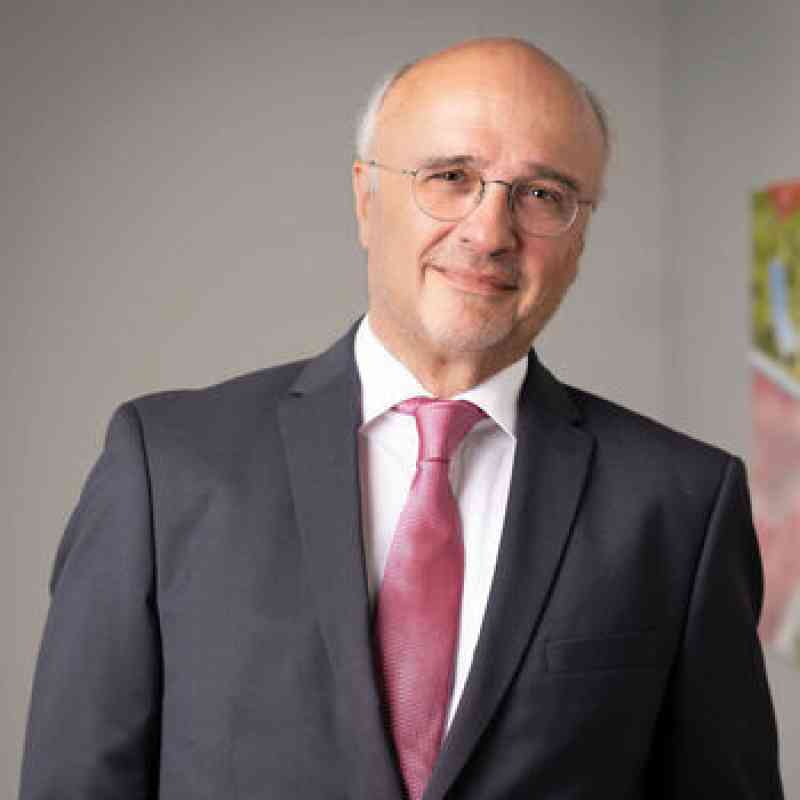EU/Competition – Legal Update
As of February 2022
► Merger Prohibitions and Examination of the new Section 39a of the German Act against Restraints of Competition (GWB)
At the beginning of this year, the competent EU and German cartel authorities caused a stir in merger control practice with two prohibitions and the launch of a sector inquiry.
The EU Commission announced on 13 January 2022, that it had prohibited the acquisition of Daewoo Shipbuilding & Marine Engineering Co., Ltd (DSME) by Hyundai Heavy Industries Holdings (HHIH) (Link) Both South Korean groups are among the world’s leading shipbuilders. The Commission concluded that the notified acquisition would have led to a dominant position on the market of the construction of large liquefied natural gas (LNG) carriers. According to the Commission, the companies failed to offer formal remedies, which is why the Commission prohibited the merger after more than two years of proceedings.
One day later, on 14 January 2022, the German Federal Cartel Office (FCO; Bundeskartellamt) stated that it had prohibited the takeover of BIRCO GmbH by Ahlmann SE & Co.KG. (Link) After investigating “more than 200 competitors, contracting entities and traders of building materials” the Bundeskartellamt came to the conclusion that prohibiting the merger was necessary for preventing the formation of a dominant position in the drainage channel sector.
To date prohibitions by the EU and German competition agencies have been extremely rare. Merger parties confronted with such prohibition have the option of taking legal action against the pertinent decision before the General Court of the EU (EGC) and the Higher Regional Court (OLG) Düsseldorf, respectively.
As demonstrated by the sector inquiry launched at the beginning of the year, the Bundeskartellamt fears negative competitive effects from growing concentration processes in the waste management sector (Link).The inquiry is intended to help the Bundeskartellamt prepare a possible injunction under Section 39a of the GWB, as in force since 2021. Under that new provision, the FCO may oblige a company to notify a merger with other entities even if the regular German merger control turnover thresholds are not reached. In the present case, the FCO is considering whether to issue such an obligation for Rethmann Group which in turn already announced that it intends to defend itself against any pertinent actions of the FCO.
► Abuse of market power: EGC overturns fine imposed on Intel
On 26 January 2022, the General Court of the EU overturned the record fine of EUR 1.06 billion which the Commission had imposed on US chip manufacturer Intel in 2009 (Case No. T-286/09 RENV, Link). The fine had sanctioned so-called “naked” restrictions (including payments by Intel to computer manufacturers in return for those manufacturers no longer using products of Intel´s competitor AMD) as well as abusive loyalty rebates.
In 2014, the EGC had fully dismissed Intel’s action against the Commission’s decision (Case No. T-286/09). However, in 2017, the European Court of Justice (ECJ) overturned that ruling and referred the case back to the EGC with specific requirements.
The EGC now concluded that the Commission’s initial assessment had been incomplete: The Commission had not provided sufficient evidence that the disputed rebates, which Intel granted to customers, had or were likely to have any anti-competitive effects. The Court therefore annulled the Commission’s decision with respect to these rebates.
The Court took the opportunity to summarise the antitrust requirements for rebate systems once again: A rebate system set up by a dominant undertaking is deemed to restrict competition if it can be presumed, due to its nature, that it has restrictive effects on competition. However, this legal presumption does not relieve the Commission of its duty to examine the anti-competitive effects of the pertinent rebate system. When challenged by the dominant undertaking, the Commission must determine whether the rebate system in fact has restrictive effects on competition based on several criteria. Criteria to be taken into account include the extent of the dominant position, the scope of the rebates, the conditions and arrangements, the duration and the amount of the rebates, the possible existence of a strategy aiming to exclude competitors that are at least as efficient as the dominant undertaking and the AEC test (as-efficient-competitor test to establish, whether a competitor could, on the one hand, compensate its customers for a foregone rebate offered by the dominant company and, on the other hand, still offer cost-covering products). The General Court found that the Commission's examination had not met these requirements and therefore annulled the classification of the rebates as abusive within the meaning of Article 102 TFEU.
The EGC was unable to determine which amount of the overall fine the Commission had imposed on Intel was accounted for by the “naked” restrictions alone as opposed to the rebates. Consequently, the Court annulled the entire Art. 2 of the contested Commission decision which had quantified and imposed the fine.
It remains to be seen whether this is the last word in that legal dispute. However, in any case, the European Courts have emphasised the high standards of evidence for proving market abuse.
► State Aid for airport: Lufthansa fails with lawsuit
On 20 January 2022, a long-lasting legal dispute over State aid in favour of airport operator Flughafen Frankfurt-Hahn GmbH came to a disappointing end for the plaintiff, the German flag carrier Lufthansa AG: The ECJ dismissed Lufthansa´s appeal (C-594/19 P, Link) and thus upheld a 2019 EGC judgment which had dismissed Lufthansa’s legal action as inadmissible (T-764/15).
The legal dispute is based on a Commission decision from 2014, which declared several state measures (loans, guarantees, credit line from the pertinent federal State´s liquidity pool) in favour of the airport operator to be compatible with the common market while denying State aid status for other measures (further loans). Lufthansa argued that the dispute at issue concerned an aid scheme against which the flag carrier was entitled to bring an action. Furthermore, Lufthansa claimed that its Irish low cost competitor Ryanair, which - unlike Lufthansa itself – actually offered flights to and from the airport, had profited from the disputed measures. Nevertheless, the European Courts denied the standing of Lufthansa. The flag carrier had not sufficiently demonstrated that it had been ‘substantially’ harmed, by the pertinent aid to the airport, in its market position to be considered “individually affected” by the disputed Commission decision.
The ruling not only underlines once again the high hurdles competitors face when trying to successfully challenge the Commission´s State aid decisions before the courts, but it also highlights how long beneficiaries must live with the legal and financial uncertainties caused by State aid proceedings.
Meanwhile, in October 2021, the airport operator filed for insolvency; further proceedings (i.a., on operation aid to the airport operator) are still pending before the European Courts (e.g., T-218/18). (Link)
On 27 January 2022, the Federal Administrative Court (Bundesverwaltungsgericht) rejected an emergency motion of an environmental activist group against the continued construction of the so-called FBFL (Fehmarn Belt Fixed Link) (Case No. 9 VR 1.22, Link). The motion sought to restore the suspensive effect of an action brought by the environmental group in October 2021 against the planning amendment decision, as adopted by the authorities, and to stop the construction work.
Background: In November 2020, the Federal Administrative Court had dismissed the lawsuits against the planning approval decision. The Court noted at the time that complementary proceedings would have to be carried out with regard to alleged further harm to local reefs.
The judgment marks a serious setback for the environmental associations involved in the proceedings. It also has the attention of port and rail operators, as the FBFL is likely to cause a relocation of freight and passenger traffic, which has so far passed through the German ports of Puttgarden, Kiel and Lübeck.
Additional News
► State Aid Law: Public consultation on proposed revision of the Railway Guidelines
The Commission’s public consultation on the proposed revision of the Railway Guidelines (in the form of a questionnaire addressed to all stakeholders) will run until 16 March 2022. The Guidelines lay out the conditions under which state aid to railway undertakings may be declared compatible with the internal market. The current Railway Guidelines are almost 14 years old. In revising the Guidelines now, the Commission wants to address market failures and improve the competitiveness of rail transport. (Link)
On 20 January 2022, the ECJ ordered Greece to pay a lump sum of EUR 5.5 million as well as periodic penalty payments of around EUR 4 million for every 6 months of default. According to the ECJ, Greece had delayed the recovery of State aid illegally granted to the troubled nickel producer Larco (C-51/20, Link). Going forward, the ECJ judgment significantly increases the pressure on Member States with regard to enforcing State aid law. However, it also impacts other proceedings: Greece has now re-tendered the nickel mining concession previously held by Larco. At the same time, the remaining assets of Larco will be sold in a competitive bidding process.
► Abuse of market power: EGC awards Deutsche Telekom compensation of approximately EUR 1,8 million
On 19 January 2022, the EGC awarded Deutsche Telekom approximately EUR 1.8 million as compensation for damages caused by the Commission´s refusal to pay default interest to Telekom on the partial amount of a fine that the Commission had to reimburse to Telekom after the Commission’s decision accusing the company of an abuse of market power was partially annulled (T-610/19). Such successes in enforcing non-contractual liability claims against the EU (Art. 340 (2) TFEU) are exceptionally rare. (Link)
***
The Chatham Partners EU/COMP-team is specialized in complex issues and proceedings in the areas of EU and German competition, State aid and public procurement law and has extensive and long-standing practical experience in these fields.


